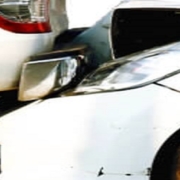What Happens if I Miss the Statute of Limitations for my Car Accident Injury?
If you were injured in an auto accident, one of the most important things you need to be aware of is the statute of limitations. “Statute of limitations” refers to the deadline you have to file a lawsuit against the person or party that caused your injury. In Alabama, the personal injury statute of limitations for most cases is two years.
When Does the Statute of Limitations Begin?
For most personal injury cases, the clock starts running on the statute of limitations from the date of the underlying accident or incident. There is a big exception to this rule, however, which would apply in cases in which an injury is not discovered immediately after the underlying event. This is commonly known as the “discovery rule” exception.
One common example of the discovery rule exception would be a workplace illness that occurs over time because of exposure to a toxic substance. When this type of situation occurs, a court may rule that the statute of limitations begins either on the date that the plaintiff discovered the illness, or on that date when the plaintiff should have reasonably known about it.
Unfortunately, the discovery rule exception is not likely to apply to a car accident case, so you should not plan on being able to use this rule to extend your deadline for an auto accident injury. There is, however, another exception you should be aware of, which would apply to personal injury lawsuits against a government entity.
If your accident was caused (at least in part) by a government agency or entity, different deadlines will apply. If the claim is against a municipality, it must be filed within six months of the accident. If the claim is against a county, it must be filed within one year of the accident. There is also a complicated administrative process that must be followed before filing a lawsuit against the government. If this process is not followed properly, you may not be allowed to file the suit later.
The Importance of Early Action in an Alabama Car Accident Case
If your accident just happened recently, like in the past week or two, you may think you have plenty of time to pursue an injury claim. But even though two years can seem like a long time, there are some very good reasons to act on your claim sooner rather than later:
Preservation of Critical Evidence
By organizing your claim immediately, you are better able to preserve evidence that may not be available if it is not obtained quickly. Examples may include photos of the accident scene, video footage from a stoplight camera, and records from the cell phone company of calls that were placed or texts that were sent (around the time of the accident). It is also very important to obtain statements from individuals who may have witnessed the accident. Memories tend to fade over time, and the sooner you can secure witness testimony, the better off you will be.
Avoiding Costly Mistakes
Just as important as preserving evidence is making sure you do not do anything that will damage your claim. This is especially important in a state like Alabama, where you may be barred from recovering damages if you are found to be even 1% at fault for the accident. You can be sure that the other side will try to use the state’s defendant-friendly legal standard against you, and this is why it is absolutely essential to get an experienced attorney involved as early as possible in the process. Otherwise, an honest mistake could cost you your right to the compensation you deserve for your injuries.
Maintaining Leverage during Settlement Negotiations
While you can still settle an injury claim even after the statute of limitations expires, your chances of recovering a decent amount of compensation are seriously diminished once you pass that deadline. Insurance companies are well aware of the fact that letting the statute of limitations expire means you forfeit their right to file a personal injury lawsuit, and they will have very little motivation to present you a fair offer at that point. The sooner you retain an attorney, the sooner settlement negotiations will begin, and the sooner your claim will be paid. And if the other side is not willing to be reasonable, your attorney always has the option to take the case to trial if necessary.
Injured in an Auto Accident in Alabama? Contact M. Adam Jones and Associates for Assistance
If you or someone close to you has been injured in a car accident, contact M. Adam Jones and Associates as soon as possible to schedule a free consultation and case assessment. Call our office today at 334-581-9238 or message us through our online contact form. You may also stop by our Dothan, AL office in person at your convenience.









